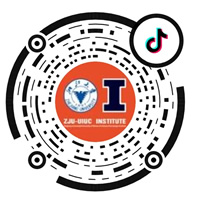Research Focus:
Information is becoming a fundamental infrastructure/support for our future world like the role of power, water, and transport0ation in our current world. The Ubiquitous Sensing and Intelligent Chip research center focuses on the fundamentals and frontiers of information science and engineering, such as information acquisition and perception, ubiquitous interconnection and communication, intelligent chips for beyond Moore and non-Von Neumann computing, and advanced heterogenous integration, etc. We aim to revolutionize the information science and engineering and break information barriers in other critical infrastructural systems including communication, transportation, manufacturing, computation, health care, food, water, energy, and environments, etc.
We push forward the technology advancement in the following directions:
· Developing intelligent sensing devices, platforms, systems, and algorithms to enhance the quality of life and to support sustainable development, including but not limited to smart wave-functional materials, intelligent sensors, advanced distributed sensor networks, quantum sensing, energy efficient integrated circuits, implantable and wearable devices, super-resolution microwave and optical imaging techniques, active lidar systems, remote sensing technology for food, water, energy, environment, and space, traffic monitoring and smart cities.
Developing techniques that enable future intelligent connectivity, mobility, and communication, including but not limited to beyond 5G wideband and ultra-high-speed communication techniques through microwave, terahertz, and quantum optics, space-borne networks, internet of things, connected vehicles, smart homes and cities, and innovative computer-brain interfaces.
· Developing techniques that enable design and integration of neuromorphic and brain-like intelligent chip and quantum computing, including but not limited to spiking neural networks, novel architectures for cognitive computing, neuromorphic sensing, intelligent chips for healthcare, communication and sensing, power efficient digital chip design, and electromagnetic integrity and security associated with artificial intelligent chip.
· Developing advanced heterogeneous integration technologies for complex devices, circuits and systems, including but not limited to advanced semiconductor fabrication techniques, micro-electromechanical systems, system in a package and system on a chip, high-speed interconnections, and advanced EDA tools and methods to ensure electromagnetic compatibility, security, and signal integrity.
· Fundamental research in electromagnetics, optics, bio-electromagnetics, multi-physics, and signal processing.








